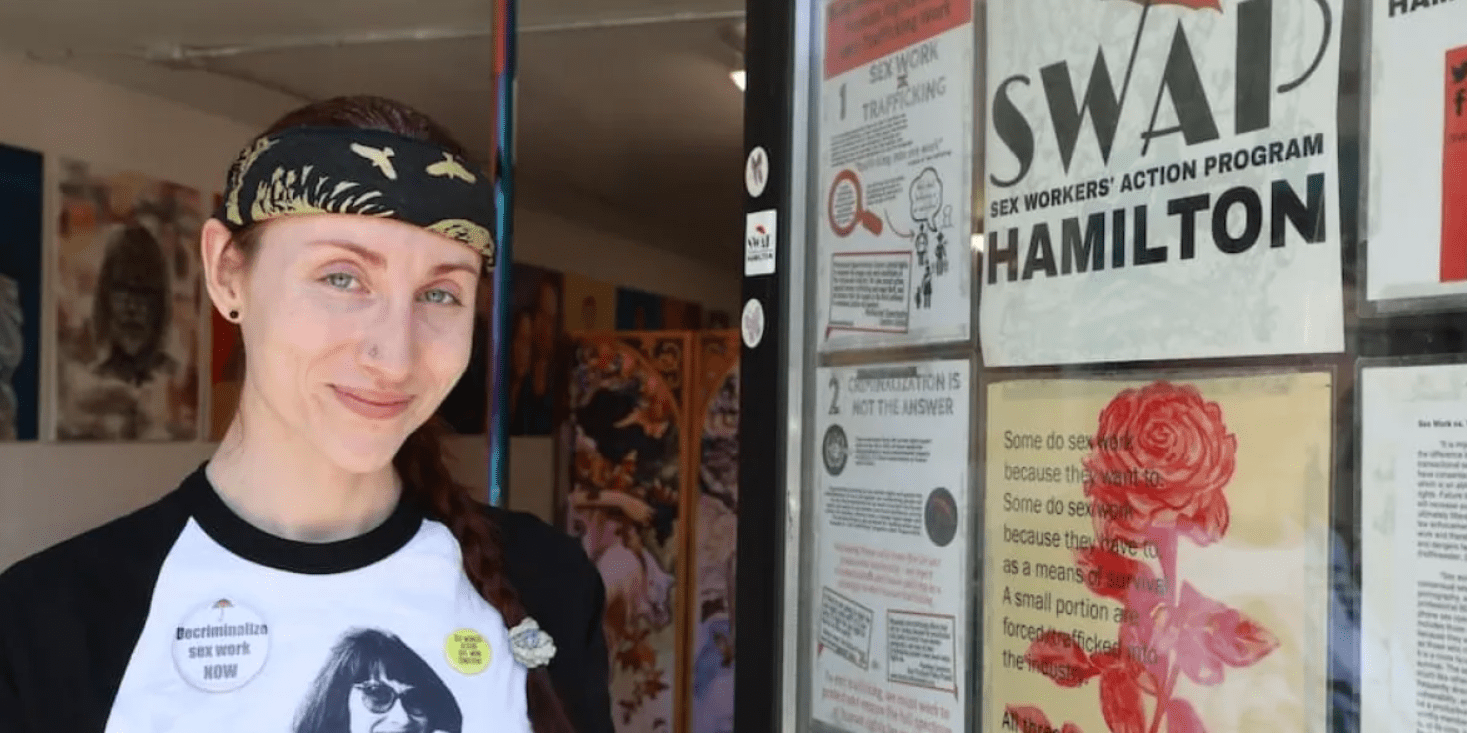New organization creates safe space for Hamilton sex workers on path to decriminalization
Published July 25, 2022 at 12:57 pm

According to executive director Jelena Vermilion, there would be no need for the Sex Workers’ Action Program (SWAP) in an ideal world.
“We are operating towards the end — that we will not need to exist at all,” she says.
The end, for Vermilion, is the decriminalization of sex work in Canada.
SWAP has been around since 2018, and its main objectives revolve around outreach, advocacy, and education. Since opening a physical location this year, SWAP has become a safe space for sex workers in Hamilton.
Strategically located near the “stroll” — the area where workers typically do their walks — the space at 771 Barton St. East provides a variety of services and resources, including wound care, sanitary and cosmetic supplies, and harm reduction materials, like pregnancy tests and contraceptives.
Vermilion herself is a personal support worker, and there is an on-call nurse practitioner that lends their services to SWAP.
Visitors also have access to clothing, non-perishable food, and a kitchenette. SWAP even provides a free laundry service.
Every Saturday between 6 and 9 p.m., SWAP holds its drop-in hours that include free counselling from registered psychotherapists.
As a trans woman who’s been working in the sex trade industry for more than a decade, Vermilion knows all about the mental and physical toll the profession can bring — a toll that she believes can be alleviated by destigmatization through criminal code amendments.
“They wouldn’t be discriminated against because they are sex workers. They wouldn’t be treated as criminals, but as workers — like any other profession,” says Vermilion.
“We’re trying to reduce stigma in our community in a multifaceted way, not just by providing support to those directly affected, but by educating our community,” she adds. “Seeing sex workers as human beings erases that stigma and helps mitigate the violence.”
SWAP held a vigil on July 15 in support of a 46-year-old woman who was the victim of a violent sexual assault on June 27 in an alleyway off Barton St.
Police say the “brutal attack” left the woman unconscious and in critical condition. She had her cheekbones, nose, and jaw broken in the attack.
The suspect, a 23-year-old man, was charged with aggravated assault.
Prostitution has always been illegal in Canada since the laws were inherited from the United Kingdom. While amendments have been made to give sex workers arrest immunity when reporting crimes against them, the vast majority still don’t feel safe doing so.
“The University of British Columbia did a study that found that only 31 per cent of sex workers would call 9-1-1 to report violence or danger,” Vermilion says. “It’s because they don’t feel like they’ll be treated safely or with dignity.”
The study involved 200 sex workers from five major cities across the country.
Those interviewed were most likely to turn to other sex workers for assistance, followed by friends and family, and clients.
Only five per cent said they would first contact the police.
Meanwhile, prostitution has been legal in New Zealand since 2003. The sex industry has been operating under employment and public health laws ever since, and the results have been positive.
Not only has the relationship between sex workers and law enforcement improved significantly, but a study conducted by the New Zealand government concluded that “The sex industry has not increased in size, and many of the social evils predicted by some who opposed the decriminalization of the sex industry have not been experienced.”
“On the whole, (sex work legalization) has been effective in achieving its purpose, and the Committee is confident that the vast majority of people involved in the sex industry are better off… than they were previously,” reads the study.
Vermilion believes sex workers and law enforcement could form a working relationship if they weren’t in conflict with one another.
“If the police want sex workers to provide them with information about their communities — and believe me, we have a lot of information — the criminality of sex work has to be removed for that relationship to be built,” she says. “It’s a matter of removing that obstacle for those relationships to flourish.”
More information on SWAP can be found on the organization’s official website: swaphamilton.com.
insauga's Editorial Standards and Policies advertising





